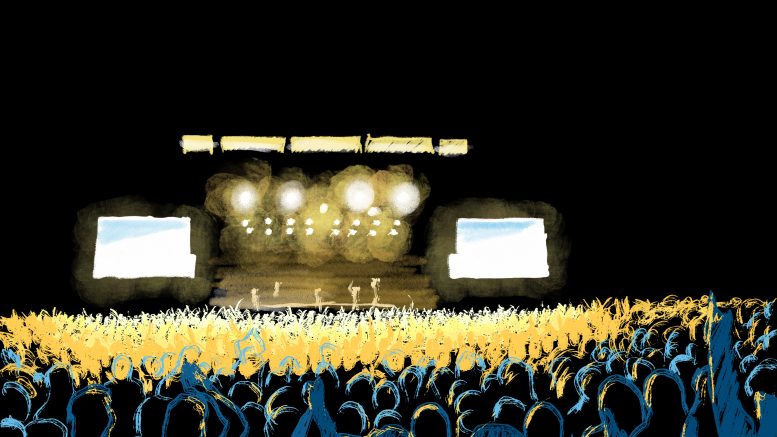After finishing a degree at the U of M, Christine Van Winkle worked at the Winnipeg Fringe Theatre Festival. Serving initially as the volunteer co-ordinator and subsequently occupying various roles at the festival over the years, Van Winkle gained first-hand experience that allowed her to discern the distinctive impact of the Fringe Festival in Winnipeg’s Exchange District.
Witnessing the festival’s ability to unite people from diverse corners of the city for shared experiences and performances proved to be an enlightening experience for Van Winkle, spurring her interest in the multifaceted roles festivals play in shaping and influencing communities.
With a background in festival administration and curiosity about the organizational dynamics behind events, Van Winkle’s research initially focused on the role of mobile devices, particularly cell phones, in shaping visitors’ experiences.
Through her research, Van Winkle found an indispensable role of mobile phones in creating a sense of safety and security during festival experiences. Van Winkle also highlighted the impact of social media and its potential to spread misinformation during events.
As a U of M professor in the faculty of kinesiology and recreation management, Van Winkle explores festivals and their impact on communities that have experienced disasters or crises. Her current research offers a fascinating peek into how festivals, often associated with joy and merriment, can aid communities on the path to recovery.
One of her research projects zeroes in on festivals’ involvement in communities affected by wildfires. Van Winkle considered case studies from Australia, the United States, Canada and Mexico, examining how these festivals play a role in both preventing wildfires and aiding in recovery.
In another project, she focused on the role of festivals in Cyprus, a post-conflict community that was divided by active conflict in the 1970s. The Buffer Fringe Performing Arts Festival, hosted on both sides of the divide and in the United Nations’ buffer zone, serves as a unique case study. Van Winkle explored the role of festivals in post-conflict situations, shedding light on the intricate dynamics at play.
When considering the differences in the impacts of festivals across countries, Van Winkle emphasized the importance of unique contexts.
“The role that festivals play after a disaster really builds on the role that they play in the day-to-day lives of the community,” she said.
Van Winkle underscored how organizers’ understandings of these unique contexts and their networks enable them to tailor events to address specific community issues.
“They’re able to produce an event that responds to the unique issues that the community is facing at the time,” she said.
Van Winkle’s research uncovered not only the positive aspects of festivals but also the associated challenges and drawbacks.
One of the challenges she found is the under-resourcing of festival organizations, which are often not-for-profit entities with limited financial resources. This underfunding poses a significant hurdle to their effectiveness in times of crisis.
However, festivals uniquely connect with diverse aspects of a community, making them valuable contributors to recovery efforts.
“But if we chronically underfund these organizations, they struggle to be able to play that part when the time comes,” Van Winkle said.
Another challenge arises from the heavy reliance of many festivals on volunteers. In post-disaster communities, volunteer resources may need to be redirected toward recovery efforts. Additionally, Van Winkle pointed out the considerable difficulty faced by communities in managing an influx of visitors in the aftermath of a crisis or disaster.
“It definitely isn’t always positive,” she said. “There are also drawbacks to festivals in communities, and they take certain resources.”
When it comes to measuring the impact of festivals on community resilience and recovery, Van Winkle said her studies are still in the analysis phase. Thematic analysis, which includes perspectives from various stakeholders, forms a crucial part of understanding the multifaceted role festivals play in recovery efforts.
“We interview people both connected to the event organization, but also people not at all connected to the event organization,” she said.
As for future research directions, Van Winkle envisions a focused exploration of festivals in post-conflict communities.
“I’ve already had the opportunity to meet with different festival organizers in communities that have experienced conflict,” she said.
“We’re looking at using a new model to help us better understand how festivals play a part, or don’t, in these communities.”
Van Winkle’s research unveils a new dimension to the world of festivals, positioning them not just as moments of celebration but as potentially integral components of community resilience and recovery.
“They can play a meaningful part of that recovery process,” she said.


